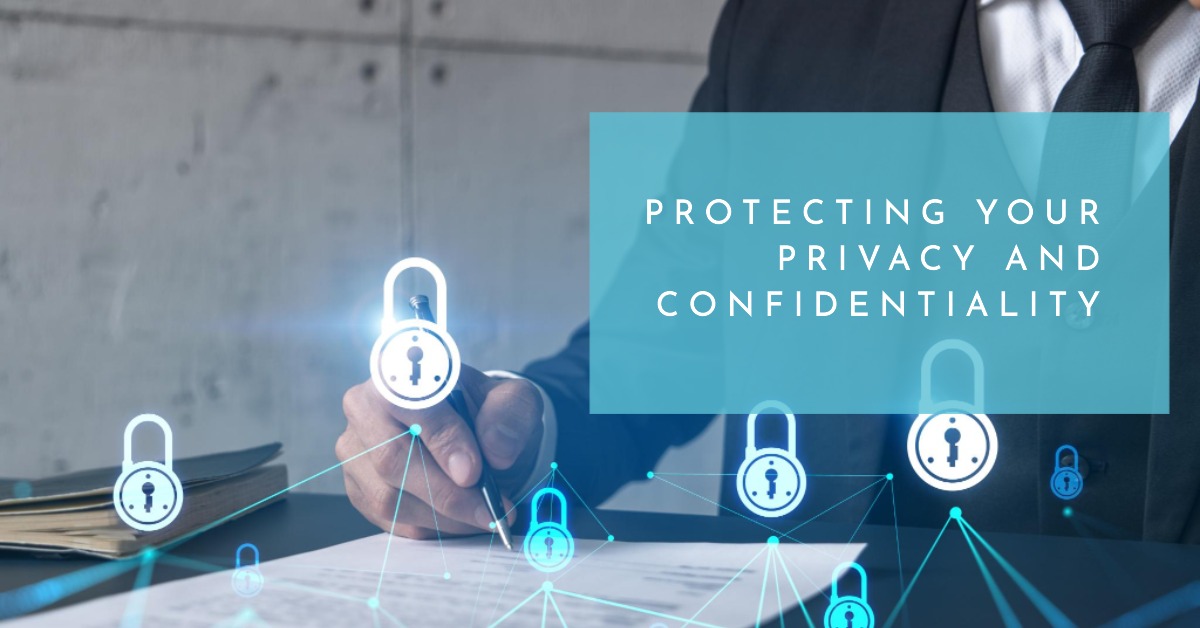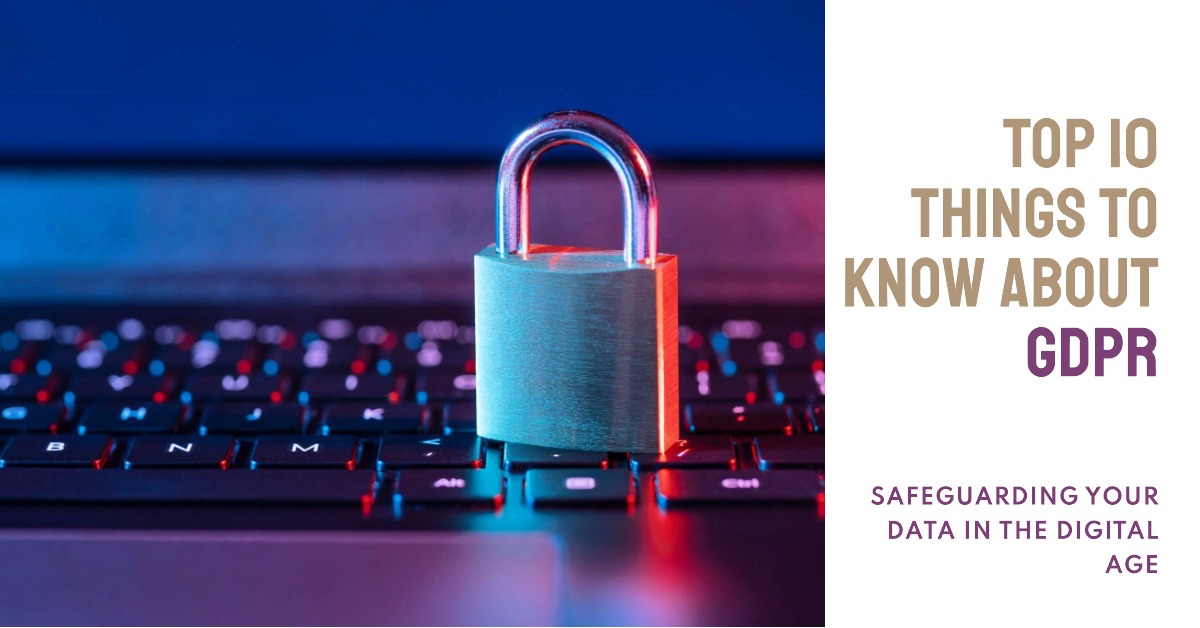
Ensuring Customer Privacy and Confidentiality: Blue Marloc's Commitment to Protecting Hotel Listings
Introduction
In today's digital age, data privacy and confidentiality are paramount concerns for businesses and consumers alike. Blue Marloc, a leading AI technology company, understands the importance of safeguarding customer privacy and protecting the confidential information of hotel listings. In this blog, we will delve into how Blue Marloc upholds a strong commitment to ensuring customer privacy and maintaining the confidentiality of hotel listings.
Secure Data Handling Practices
Blue Marloc employs robust security measures to safeguard customer data and hotel listing information. The company adheres to industry best practices and complies with relevant data protection regulations. Blue Marloc's SAAS platform is built with state-of-the-art security protocols to ensure that customer data is protected from unauthorized access, breaches, or misuse. By implementing secure data handling practices, Blue Marloc instills confidence in its customers, assuring them that their sensitive information is handled with utmost care and integrity.
Data Encryption and Storage
To further protect customer privacy and maintain the confidentiality of hotel listings, Blue Marloc employs advanced data encryption and secure storage protocols. All customer data, including personally identifiable information (PII) and confidential hotel details, are encrypted during transmission and storage. Encryption ensures that data remains unreadable to unauthorized individuals, providing an additional layer of protection. Blue Marloc's secure storage infrastructure adheres to industry standards, with stringent access controls and monitoring mechanisms in place to prevent data breaches.
Consent and Transparent Data Practices
Blue Marloc values transparency and ensures that customers' data is handled with their consent and in line with their preferences. Prior to collecting and processing any customer data, Blue Marloc obtains explicit consent and provides clear information about the purpose and usage of the data. Customers have the right to access and manage their personal information, giving them control over their data. Blue Marloc maintains transparent data practices, keeping customers informed about how their data is utilized and offering options to opt out or modify their preferences.
Confidentiality of Hotel Listings
Blue Marloc recognizes the sensitive nature of hotel listing information and maintains strict confidentiality. Hotel details and proprietary information shared by partners and clients are treated as highly confidential. Blue Marloc implements strict access controls and confidentiality agreements with its employees and contractors, ensuring that hotel listings are protected from unauthorized disclosure. The company respects the intellectual property rights of its partners and clients, safeguarding their competitive advantage and fostering trust in their business relationship.
Compliance with Data Protection Regulations
Blue Marloc is committed to upholding compliance with relevant data protection regulations, including but not limited to the General Data Protection Regulation (GDPR) and other applicable regional laws. The company maintains internal policies and procedures to ensure adherence to these regulations and regularly reviews and updates its practices to stay current with evolving privacy requirements. By complying with data protection regulations, Blue Marloc provides customers and partners with reassurance that their data is handled in accordance with legal and ethical standards.
Conclusion
Blue Marloc places utmost importance on ensuring customer privacy and maintaining the confidentiality of hotel listings. Through secure data handling practices, advanced encryption, and transparent data practices, Blue Marloc protects customer data from unauthorized access or misuse. The company's commitment to confidentiality extends to hotel listings, safeguarding proprietary information and respecting the competitive advantage of its partners and clients. By upholding compliance with data protection regulations, Blue Marloc demonstrates its dedication to privacy and earns the trust of its customers and partners. Rest assured that with Blue Marloc, customer privacy and the confidentiality of hotel listings are of the highest priority.

GDPR and Telesales is Telesales still a viable option ? the short answer Yes.
source: GDPR and Telesales – Is Cold Calling Still Permitted? - VCC Live
GDPR certainly affects most businesses, but there are a number of industries that are more affected than others when it comes to complying with the new legislation. And the telesales industry, which typically relies on cold calling, is not surprisingly one of them.
We already created a GDPR checklist and outlined how your call center can process call recordings in accordance with the new rules, so now it’s time to talk about how GDPR affects telesales, and most importantly cold calling.
And if you think that GDPR doesn’t apply to your telesales activities, think again and read on. In this article, we’ll show you what you need to do to ensure you can continue relying on cold calling as part of your telesales strategy in the post-GDPR world.
Read our practical contact center GDPR GUIDE for every detail you need!
Cold calling after GDPR
As we all know, telesales is a service that sells products or services directly to customers via (often cold) phone calls. Of course, in order to be able to contact customers via phone, businesses need to store and process a huge volume of personal data. Now that GDPR came into force, how has the situation changed?
The good news is that cold calling is still permitted, however, the rules of the game have changed considerably. Although the new legislation does not address cold calling directly, having your customers’ personal data may be against GDPR principles.
Before we immerse ourselves in the topic, let’s quickly clarify what’s the definition of personal data under GDPR. As we already mentioned in our previous article, voice files are considered personal data as they can include personal information, such as the caller’s name, address or financial information.
Consequently, data telesales departments typically rely on, including names, home addresses, phone numbers and email addresses, are all considered personal data.
Six criteria outlined by GDPR
If you want to continue your telesales activities in accordance with GDPR, it’s time to take a look at the six criteria you will need to meet in order to be able to store and process your customers’ personal data. Under GDPR, your business needs to justify that the purpose for storing and processing customer data fulfills one of the criteria below:
- Customers gave you their consent to use their data
- You’re entering into a contract with a customer and you’re processing their data in order to fulfill the contract
- Processing of data is necessary for compliance with a legal obligation
- You’re processing data to protect someone’s vital interests
- You’re processing data to carry out a task in the public interest
- Processing is necessary for legitimate interest, except where such interest is overridden by the customer’s fundamental rights and freedoms
When it comes to cold calling, it’s quite unlikely that criterion 2 to 5 will apply to you. So, your best bet remains focusing on customer consent and legitimate interest.
GDPR and consent for cold calling
With GDPR now in force, gone are the days of hiding pre-checked boxes at the bottom of a webpage. In order to be able to contact a customer, businesses now need to have the customer’s clear and explicit consent.
As outlined by GDPR, when initiating cold calls, you’ll need to notify your customers that you’re storing and processing their data, and ask for their consent to be able to continue to do so afterward. Of course, it’s probably not recommended beginning a phone call with this information, but you’ll need to make sure they’re fine with you having their data, ideally within the first seconds of the call.
GDPR also specifies that customers who previously gave consent to have their data stored and processed can withdraw this consent at any time, and it’s your business’ responsibility to immediately delete the relevant data.
Furthermore, the actual consent itself always needs to be recorded and be available at any time. Call recording is a common call center practice and can be used to make customer consent easily available and transparent. However, bear in mind that GDPR also applies to call recording.
GDPR and legitimate interest – the savior of cold calling
Let’s be honest, obtaining your customers’ consent to contact them before you actually contact them is not an easy task.
And this is where the option of legitimate interest comes into play: the last criterion says that as long as you have a legitimate business interest in contacting customers, and it’s not overridden by your customers’ decision not to be contacted, you’re allowed to call them.
Luckily, selling a product or service is considered a legitimate business interest, making the last criterion in the legislation the savior of cold calling.
For instance, if you call a customer and offer – let’s say – a new service package to them over the phone, then, as long as you’re not misleading or deceiving them, your offer is considered a legitimate business interest.
But while this is, without doubt, a great loophole for telesales departments, it doesn’t mean that businesses can continue to call an endless number of potential customers.
With GDPR in force, telesales departments need to be able to justify that they are calling potential customers who are truly interested in their products or services, rather than just randomly dialing all available phone numbers in their database.
Balancing test
In order to ensure that your cold calling efforts are a legitimate business interest, you’ll need to do a so-called “balancing test”, in other words, a comparison of your business interest against those of the prospects you want to call.
In brief, products and services that are offered via cold calling in a genuine way, without misleading or deceiving customers, are considered a legitimate business interest. Simple as that.
However, in order to make sure that your cold calls based on legitimate business interest won’t harm your customers, you’ll need to put certain “safeguards” in place.
Amongst other things, you’ll always have to provide customers with the opportunity to easily opt-out of continued storing and processing of their data. GDPR also states that businesses can only store and process data that is absolutely necessary for providing their service to its full extent. For instance, if you don’t need to have a prospect’s date of birth, then you shouldn’t ask them for it. Furthermore, always make sure to raise awareness of data protection in your organization, and test your procedures systematically.
The more “safeguards” you implement in your organization, the more balanced your rights to do business will be against the prospect’s right not to be called.
As you can see, GDPR is not the death of cold calls. Just study our article, allocate enough time to prepare for the new rules (if you haven’t done so already), and you’re good to go!

Navigating GDPR Compliance: Blue Marloc's Commitment to Data Protection and Privacy
Introduction
In today's digital landscape, data protection and privacy have become crucial considerations for businesses worldwide. The General Data Protection Regulation (GDPR) sets stringent standards for handling personal data, empowering individuals and enhancing their privacy rights. At Blue Marloc, we prioritize GDPR compliance and place a strong emphasis on data protection and privacy. In this blog post, we will explore how Blue Marloc navigates GDPR compliance, ensuring the safeguarding of personal data and fostering trust with our clients and partners.
Understanding GDPR's Reach
GDPR applies to organizations that process personal data of individuals within the European Union (EU). Blue Marloc recognizes the broad applicability of GDPR and ensures compliance with its provisions when handling personal data of EU residents. By understanding the territorial scope of GDPR, we guarantee that our operations align with the regulation's requirements.
Transparency and Lawful Processing
Transparency and lawful processing of personal data are fundamental principles of GDPR. Blue Marloc ensures that all personal data processing activities are conducted lawfully and transparently. We obtain consent from individuals for processing their data and provide them with clear information regarding the purposes and legal basis for the data processing activities.
Individual Rights and Data Subject Requests
GDPR grants individuals several rights, including the right to access, rectify, and erase their personal data. Blue Marloc has implemented robust processes and procedures to address data subject requests promptly and ensure compliance with individuals' rights. We empower individuals to exercise their rights and offer clear channels for submitting such requests.
Privacy by Design and Default
Privacy by Design and Default is a fundamental concept in GDPR. Blue Marloc integrates privacy measures into our products, services, and business processes from the initial design stage. By implementing Privacy by Design principles, we prioritize data protection, minimize data collection, and ensure that privacy considerations are embedded throughout our systems and practices.
Data Security and Breach Response
Under GDPR, organizations must implement appropriate technical and organizational measures to protect personal data. Blue Marloc places a high emphasis on data security and has implemented stringent security protocols to safeguard personal data from unauthorized access, loss, or theft. Additionally, we have established robust incident response procedures to address any potential data breaches promptly and effectively.
Vendor and Partner Compliance
GDPR extends the responsibility for data protection to vendors and partners. Blue Marloc ensures that our vendors and partners comply with GDPR requirements through robust data protection agreements. These agreements outline the necessary measures and responsibilities to safeguard personal data throughout our partnerships.
International Data Transfers
Transferring personal data outside the EU requires adherence to GDPR's requirements. Blue Marloc follows GDPR guidelines for international data transfers, employing approved mechanisms such as Standard Contractual Clauses (SCCs) or ensuring the existence of an adequacy decision. We prioritize the protection of personal data regardless of its location.
Ongoing Compliance and Accountability
GDPR compliance is an ongoing commitment. Blue Marloc maintains a strong culture of compliance and accountability, regularly reviewing and updating our policies, procedures, and systems to align with evolving privacy regulations. We conduct internal audits and assessments to ensure our compliance with GDPR and related data protection laws.
Conclusion
At Blue Marloc, we embrace the principles and requirements set forth by GDPR. Our commitment to GDPR compliance goes beyond mere adherence to legal obligations. We prioritize data protection and privacy in everything we do, from product development to client interactions. By navigating GDPR compliance, we assure our clients and partners that their personal data is handled with the utmost care and respect. Trust Blue Marloc as your GDPR-compliant partner and embark on a journey of enhanced data protection and privacy.

Top 10 Things You Need to Know about GDPR: Safeguarding Data with Blue Marloc
Introduction
The General Data Protection Regulation (GDPR) has transformed the way businesses handle personal data and reinforced the importance of data protection and privacy. At Blue Marloc, a leading AI technology company, we prioritize data security and compliance with GDPR regulations. In this blog post, we will provide you with the top 10 things you need to know about GDPR and highlight how Blue Marloc ensures data protection and compliance within its operations.
Scope and Applicability
GDPR applies to any organization that processes personal data of individuals residing in the European Union (EU). Blue Marloc acknowledges the broad scope of GDPR and ensures compliance in all its interactions and operations involving personal data.
Lawful Basis for Data Processing
Under GDPR, organizations must have a lawful basis for processing personal data. Blue Marloc ensures that any data processing activities are conducted based on a legitimate lawful basis, such as consent or the necessity to fulfill contractual obligations.
Data Minimization and Purpose Limitation
GDPR emphasizes the principle of data minimization and purpose limitation. Blue Marloc adheres to these principles by collecting only the necessary data and using it solely for the specified purposes communicated to the individuals.
Individual Rights
GDPR grants individuals various rights, including the right to access, rectify, and erase their personal data. Blue Marloc has implemented processes and procedures to facilitate individuals' exercise of their rights and promptly respond to their requests.
Data Security Measures
GDPR requires organizations to implement appropriate technical and organizational measures to ensure the security of personal data. Blue Marloc takes data security seriously and has implemented robust security measures to protect personal data from unauthorized access, loss, or misuse.
Data Breach Notification
In the event of a data breach, organizations must notify the relevant supervisory authority and affected individuals without undue delay. Blue Marloc has established procedures to promptly identify and address any potential data breaches, ensuring compliance with the GDPR's notification requirements.
Data Processing Agreements
GDPR mandates that organizations enter into data processing agreements with their vendors and partners to ensure that personal data is processed in compliance with GDPR requirements. Blue Marloc maintains such agreements with its partners, outlining the necessary safeguards for data protection.
International Data Transfers
When transferring personal data outside the EU, organizations must ensure an adequate level of data protection. Blue Marloc complies with GDPR requirements for international data transfers, including utilizing standard contractual clauses or other approved mechanisms to safeguard data transfers.
Privacy by Design and Default
GDPR promotes the principle of privacy by design and default, requiring organizations to implement data protection measures from the outset of any project. Blue Marloc embeds privacy by design principles into its products and services, ensuring data protection is an integral part of its operations.
Data Protection Officer (DPO)
Organizations may appoint a Data Protection Officer (DPO) to oversee data protection activities. Blue Marloc has designated a DPO responsible for ensuring compliance with GDPR and addressing data protection matters within the organization.
Conclusion
As businesses navigate the complexities of GDPR, Blue Marloc stands committed to safeguarding data and maintaining compliance with GDPR regulations. Our adherence to the top 10 things you need to know about GDPR, including scope and applicability, lawful basis for data processing, data security measures, and individual rights, demonstrates our dedication to data protection and privacy. By choosing Blue Marloc, you can be confident that your data is handled with the highest level of security and compliance. Trust Blue Marloc as your partner in achieving GDPR compliance and safeguarding your valuable data.


